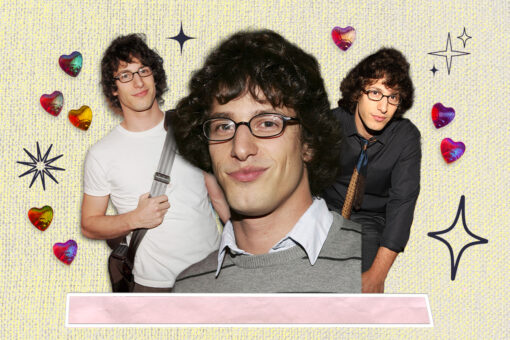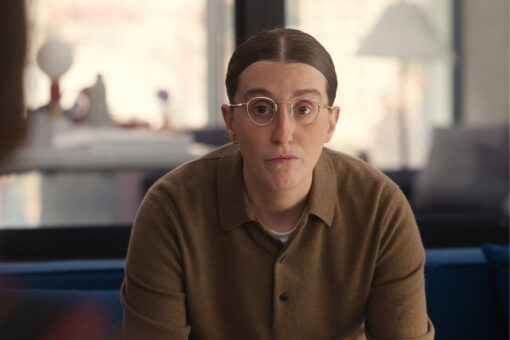If you’re like me, you may have considered, while leaving yet another disappointing date, that maybe a matchmaker wouldn’t be such a bad idea. Maybe, more than once, you’ve concluded that you would be glad to outsource the endlessly frustrating search for someone to a third party. If you’re like me, you’ve indulged in these fantasies while inhaling post-disaster date ice cream on the couch and attempting to delete, for the umpteenth time, all the dating apps from your phone.
Well, this season, you now have several swoon-worthy books to accompany the ice cream. Three novels — “The Matchmaker’s Gift” by Lynda Cohen Loigman, “Meant To be Mine” by Hannah Orenstein and “Mr. Perfect on Paper” by Jean Meltzer — all present distinctive visions of Jewish matchmaking. In doing so, they engage with both this uniquely potent fantasy and its limitations.
“The Matchmaker’s Gift” is a dual timeline narrative about two women: Sara Glickman, a young woman on the Lower East Side at the turn of the century who possesses a power to see the literal threads connecting soul mates, and her granddaughter Abby, a divorce attorney who discovers that this gift may have been hereditary — to the jeopardy of her career. Matchmaking also takes on a supernatural quality in “Meant To Be Mine,” where we similarly meet Edie Meyer, a young woman whose grandmother possesses the power to predict the exact day her family members will meet their soulmates. But Edie’s hopes to find that perfect satisfying match on her appointed day are thrown into doubt when her perfect guy doesn’t seem to line up with the prediction. In “Mr. Perfect On Paper,” a magical ability is replaced with a terrifying amount of chutzpah (seriously, if you are prone to second-hand embarrassment, be prepared). When Dara Rabinowitz, the CEO of a Jewish dating app, has her childhood list of requirements for the “perfect” husband read aloud on TV by her grandmother, the handsome host decides he will try to find Dara her perfect match.
Each book is a fresh and romantic take on the matchmaker premise, but I was struck by the way these narratives placed dating and matchmaking at the forefront of their protagonists’ Jewish identities. Matchmaking is not just about the women’s romantic lives, but also about their relationships to the past and to their communities. Each story centered grandmothers as figures who were simultaneously links to a Jewish past, through their history and knowledge, and builders of future families. The books grapple with questions about what makes a good match — how can one identify that factor that evades description? They are all fascinated by the contradictions between chemistry and “perfect on paper” matches. But in each, there is the implicit assumption that this is the kind of knowledge that Jewish grandmothers possess as an almost superpower, one to be passed down as a legacy and essential element of Jewish culture.
I loved that these books centered the lives and relationships of Jewish women, but I will admit: My inner (and very single) cynic chafed a little at the way matchmaking was presented as the beating heart of Jewish feminine identity.
To be sure, it is not an inaccurate reflection of how Jewish spaces across denominations often treat single women. No Jewish community is immune to misogyny, and many spaces are not really designed for singles. It is also a truth universally acknowledged that a major goal of youth groups, summer camps, organized Israel trips and other Jewish community social activities is matchmaking. To be a Jewish woman in most Jewish spaces is to feel regularly bombarded with messaging about the urgency of marriage and all that “should” come after.
And in reading, I was at times really frustrated on behalf of the heroines, who are all presented as accomplished and ambitious but who are all ready to throw their lives into chaos in order to match and be matched. It was a frustration born out of immediate recognition. I saw so many of the Jewish women I know in Edie, Dara and Abby. I recognized the anxiety at the root of all these books in myself: the fear that no matter what else you’ve achieved, if you’re still single, you’ve been doing it all wrong.
But ultimately, each of the books is a joyful read — because each book is well aware that its heroine is suffocating under the weight of marital expectations. All the protagonists struggle with the sense that they are failing. They place panic-inducing high stakes on marriage in part because they have internalized the messaging that the most important thing a Jewish woman can do is be wed. And in each book, matchmaking isn’t really the solution to the women’s woes. In fact, it is frequently the source of their personal miseries. In “The Matchmaker’s Gift,” it remains an open question whether the ability to see perfect matches is in fact a gift at all, rather than a curse. In “Meant To Be Mine,” Edie’s initial decision to live by the promise of a perfect match on the day her grandmother predicted nearly ruins her life. And in “Mr. Perfect on Paper,” Dara nearly misses out on her real “Mr. Perfect” because of her fixation on process and structure over feeling.
In the end, none of these women find that matchmaking is the antidote to love’s uncertainties. Instead, they all learn that their chances of finding love are greatly enhanced when they cut themselves a break — that whether by magic or luck or grandmotherly wisdom, they’ll come upon the happiness they’re chasing when unburden themselves from crushing expectations and remember their own agency in matters of the heart.



